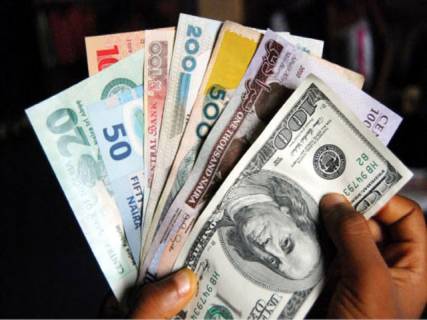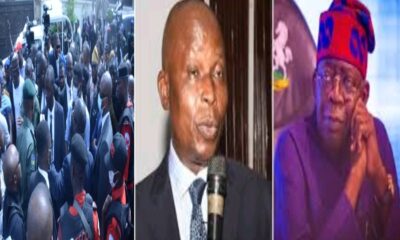Economic Issues
EDITORIAL: The Naira, the CBN, and the Price Mechanism -Premium Times

The Central Bank of Nigeria’s (CBN) decision, last week, to bar 41 local business lines from domestic foreign exchange markets violates two basic administrative principles.
First, it appears to punish economic activity, which only recently were the preserve of perfectly responsible citizens. Second, in consequence, it would divert scarce central banking resources away from the more important remit of ensuring price stability, to administrative duties policing the foreign exchange markets in search of foreign exchange markets’ scofflaws.
At first blush, the arguments for this intervention appear very strong. After oil prices plummeted in the global markets mid-2014, the Nigerian economy has struggled. With crude oil export earnings accounting for a sizeable share of government revenues, this straitened circumstance has shown up in a couple of provincial governments’ inability to meet staff salaries.
Add to the social tensions that have arisen on the back of this are worries over the CBN’s foreign reserve balances. It is from this coffer that the apex bank has supplied the dollars with which it has managed the naira’s exchange rate for as long as the country has been sovereign. However, at a little over US$29bn, the balance on this account is barely adequate for 5 months of import at current consumption levels ― this arithmetic estimates annual foreign exchange use at about US$6bn.
By forbidding access by the 41 industry groups covered in its recent ban to the foreign exchange markets, the CBN hopes therefore to better manage drawdowns on the foreign reserve balances. Unfortunately, this is the wrong way to go. Administrative measures rarely ever allocate resources efficiently, for not only do they depend on the administrator correctly calling the markets’ trajectories, they often call for investment in policing capacity that are better used up regulating operators in an open economy. Indeed, even Lenin did admit that when/where supply and demand imbalances exist in any economy, “trade” remains the most efficient way of allocating scarce resources.
Better, therefore, were the CBN to have allowed prices to determine the allocation of an increasingly scarce national resource. True the price mechanism regularly results in imbalances in economies. But at least they allow domestic consumption preferences to show up in the prices which domestic actors are willing to pay for goods and services on offer in the economy.
Arguably, there are legitimate concerns over the composition of our domestic imports. But then the larger part of the incentives here are around the high costs of doing business locally. Therefore, whereas the CBN may be pained by the response of domestic actors to these costs, including umbrage at the importation of toothpicks, a better way to proceed is for government to bring down these costs.
A more business friendly environment would, of course, include a reduction of the number of processes and agencies involved in the granting of such simple instruments as business licences.
Ultimately, though, these are matters squarely in the fiscal policy domain. They are in other words government’s responsibility. The CBN may through its monetary policy measures help support government initiatives in this respect; but as the past decade-and-a-half of quasi-fiscal intervention by the apex bank has shown, these are not properly its remit.





















